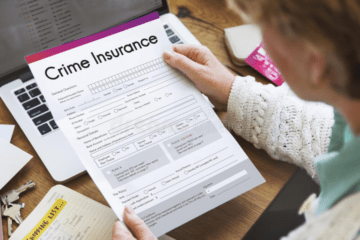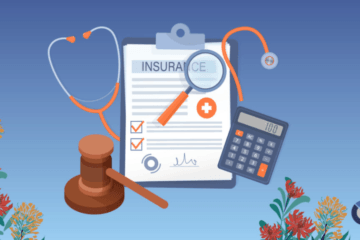The Ultimate Guide to Understanding Commercial Building Insurance

Commercial Building Insurance
As a business owner, your commercial property is one of your most valuable assets. Whether you own a small retail store or a large industrial complex, it’s essential to protect your investment with commercial building insurance. But with so many different types of coverage and policies available, understanding the ins and outs of commercial building insurance can be overwhelming. That’s where this ultimate guide comes in. In this comprehensive resource, we’ll break down everything you need to know about commercial building insurance, from the different types of coverage available to the factors that impact your premiums. We’ll also provide tips for choosing the right policy for your specific business needs and answer some of the most common questions about commercial building insurance. So whether you’re a seasoned business owner or just starting out, this guide will help you navigate the complex world of commercial property insurance with confidence.
Types of Commercial Building Insurance
When it comes to commercial building insurance, there are several types of coverage available. The most common types of coverage include:
Property Insurance
Property insurance is the most basic type of coverage for commercial buildings. It covers the cost of repairing or rebuilding your building if it’s damaged by a covered event, such as a fire, storm, or vandalism. Property insurance can also cover the cost of replacing your business equipment and inventory if they’re damaged or destroyed.
Liability Insurance
Liability insurance is designed to protect you if someone is injured on your property or if you or your employees cause damage to someone else’s property. It covers the cost of legal fees, medical expenses, and other damages if you’re found liable for an accident.
Business Interruption Insurance
Business interruption insurance is designed to cover the loss of income and other expenses if your business is forced to close temporarily due to a covered event, such as a fire or natural disaster. It can help you pay for rent, employee salaries, and other expenses while you’re unable to operate your business.
Coverage Options for Commercial Building Insurance
In addition to the three types of coverage mentioned above, there are several other coverage options available for commercial building insurance. These include:
Flood Insurance
Flood insurance is a separate policy that covers damage caused by flooding, which is not typically covered by property insurance. If you live in an area that’s prone to flooding, you may be required to purchase flood insurance in addition to property insurance.
Earthquake Insurance
Earthquake insurance is another separate policy that covers damage caused by earthquakes, which is not typically covered by property insurance. If you live in an area that’s prone to earthquakes, you may be required to purchase earthquake insurance in addition to property insurance.
Terrorism Insurance
Terrorism insurance is designed to cover the cost of damages and losses caused by acts of terrorism. This type of coverage is not typically included in standard property insurance policies.
How to Choose the Right Commercial Building Insurance Policy
Choosing the right commercial building insurance policy can be a daunting task. Here are some tips to help you make the right decision:
Assess Your Risks
Before you start shopping for insurance, it’s important to assess your risks. Consider the location of your building, the type of business you operate, and the potential risks associated with your industry. This will help you determine the types and amount of coverage you need.
Compare Policies
Once you’ve assessed your risks, it’s time to start shopping for insurance. Be sure to compare policies from multiple providers to find the best coverage at the best price.
Consider Your Budget
While it’s important to have adequate coverage, it’s also important to consider your budget. Make sure the policy you choose fits within your budget and that you’re comfortable with the deductible and premium amounts.
Tips for Filing a Commercial Building Insurance Claim
If your commercial building is damaged or destroyed, filing an insurance claim can be a complicated process. Here are some tips to help you navigate the claims process:
Document the Damage
Before you start the claims process, it’s important to document the damage. Take photos and videos of the damage and make a list of any items that were damaged or destroyed.
Notify Your Insurance Provider
As soon as possible, notify your insurance provider that you need to file a claim. They will provide you with the necessary forms and information to start the claims process.
Work with the Adjuster
Once you’ve filed your claim, an insurance adjuster will be assigned to your case. Work closely with the adjuster and provide them with any information or documentation they request.
Frequently Asked Questions about Commercial Building Insurance
Here are some of the most commonly asked questions about commercial building insurance:
What is the average cost of commercial building insurance?
The cost of commercial building insurance varies depending on several factors, including the location of your building, the type of business you operate, and the amount of coverage you need.
Is commercial building insurance required by law?
Commercial building insurance is not typically required by law, but it may be required by your landlord or lender.
What types of events are covered by commercial building insurance?
Commercial building insurance typically covers damage caused by fire, storm, vandalism, theft, and other covered events.
Case Studies of Commercial Building Insurance Claims
Here are a few examples of real-life commercial building insurance claims:
Fire Damage
A small retail store in a shopping center was destroyed by a fire. The owner had property insurance that covered the cost of rebuilding the store and replacing the damaged inventory.
Flood Damage
A manufacturing plant was flooded after a nearby river overflowed. The owner had flood insurance that covered the cost of repairing the damage and replacing the damaged equipment.
Liability Claim
A customer slipped and fell on a wet floor in a grocery store, injuring themselves. The store owner had liability insurance that covered the cost of the customer’s medical expenses and legal fees.
Also Read – The Ultimate Guide to Understanding Home Insurance: Protecting Your Biggest Investment
Conclusion and Key Takeaways
Commercial building insurance is an essential tool for protecting your investment and ensuring that your business can continue to operate even in the face of unexpected events. By understanding the different types of coverage available, assessing your risks, and choosing the right policy, you can be confident that you’re protected. Remember to document any damage, notify your insurance provider as soon as possible, and work closely with the adjuster during the claims process. With these tips in mind, you can navigate the complex world of commercial building insurance with confidence.















